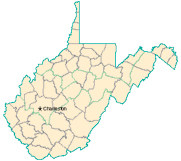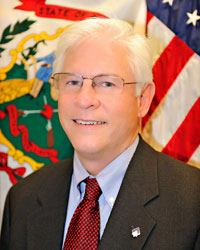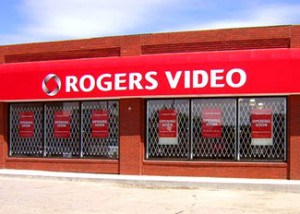 As Stop the Cap! first reported last summer, the state of West Virginia is embroiled in a growing scandal over how the state spent more than $126 million in federal institutional broadband expansion funds it was awarded in 2010.
As Stop the Cap! first reported last summer, the state of West Virginia is embroiled in a growing scandal over how the state spent more than $126 million in federal institutional broadband expansion funds it was awarded in 2010.
Sources inside two small community libraries and a regional government office collectively contacted Stop the Cap! this week warning that some of the targets for broadband funding including schools, government offices, and libraries have been handed world-class broadband networks they cannot operate without ongoing support not included in the grant. With little chance of funding, many institutions will be unable to pay the monthly service rates and maintenance fees charged to keep the networks running.
“We are getting a Hummer network on a Kia operating budget,” one community library official tells Stop the Cap! “The network sounds great, but in our case we have to find the money to pay the bill to run it every month, and that money is hard to find in a library with five outdated public terminals.”
Another source tells us installers left more than one library with equipment nobody knew how to operate.

The Cisco 3900 router series
“They installed it over the course of a few days and just left, and nobody here knows how it works,” the librarian tells us. “We’ve quietly gone back to our old Wi-Fi system until we can figure these things out. We don’t even have their phone number.”
At a library in Hurricane, librarian Rebecca Elliot said workers who showed up to install the router didn’t leave behind instructions or a user manual either.
“I don’t know much about those kinds of things,” Elliot told the AP. “I just work here.”
While the original purpose of the grant was to “improve broadband” in the Mountain State, the funding came with significant restrictions that targeted the money exclusively for institutional broadband networks that do not serve individual residences or businesses. While West Virginians languished with some the country’s worst broadband service, state officials were green-lighting spending on grossly oversized equipment that institutional users simply don’t need and sometimes cannot afford to operate.

Martin
One critic, Jim Martin, president of business broadband provider Citynet said last summer the state gave preferential treatment to Frontier Communications to construct networks that ultimately favored them as the logical choice of service provider, but left small institutions with service bills they can never hope to pay.
“Where is the accountability,” Martin asked this week.
His fears appear to be justified. This week, a consulting firm has been hired by the state to audit how more than $126 million in taxpayer funds were spent after reports in the Charleston press brought news the state paid millions to deploy equipment to facilities that did not need any service improvements.
The Charleston Gazette reports it found 366 unused routers valued at more than $22,000 each in storage. They have been there for two years. In fact, at least $24 million was spent on routers designed to be used by large corporations or universities that were installed in libraries and public safety centers with just a handful of personal computers. Experts say a basic retail router priced at $50 could have provided more than acceptable service to these locations.
West Virginia’s state Commerce Secretary Keith Burdette on Monday admitted, more than two years after the state won the grant, now might be a good time to hire a consultant that does not work for a company trying to sell the state broadband equipment or services.
Despite the suggestion the state designed its network improvements based on the recommendation of equipment vendors, Burdette sought to move on and avoid “finger-pointing” and “dwelling on past decisions.”

Burdette
“I don’t want to spend a lot of time on things we cannot change,” Burdette told the Gazette. “If we made mistakes, then we need to look at how do we take lemons and make lemonade.”
“That’s the most expensive glass of lemonade in the history of West Virginia,” replies our source inside a regional government office. “Imagine what that money could have done extending broadband service to the homes and businesses that do not have it today.”
Our source says the state government is engaged in classic “butt-covering” with the announced state audit.
“Of course the report will blame people lower down in government while leaving the oversight failure for another day,” he tells us. “What’s a hundred million in taxpayer money, right?”
Burdette and other state officials might have listened to the state’s own Office of Technology, whose administrator warned that the routers — the Cisco series 3945 — “may be grossly oversized.” Other state and library officials also questioned the purchases. Burdette said the state should have hired a consultant before purchasing the equipment and launching the expansion project, which will not deliver a single broadband connection to any resident or business in the state.
Martin said in 2011 the entire grant process was wrong-headed from the beginning. Martin says the state should have spent the money on a stronger middle-mile network to boost capacity for everyone in the state.
Now West Virginia is in a hurry to spend the remainder of the grant award — an undetermined amount — before the grant spending expiration date is reached. Unspent funds must be returned to the federal government.
State officials promise they will find a home for every unused router by the time the stimulus grant expires. That could leave a rural county sheriff’s office with a router designed to serve a minimum of 500 concurrent users in a facility with fewer than a dozen aging personal computers.


 Subscribe
Subscribe









